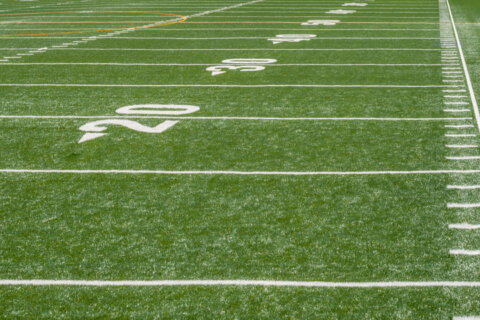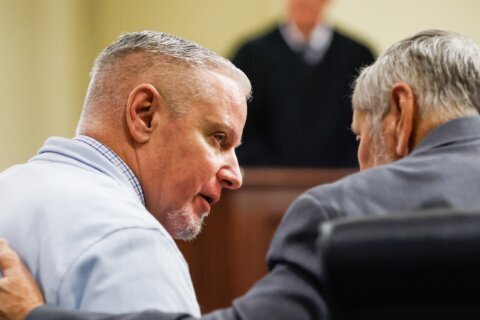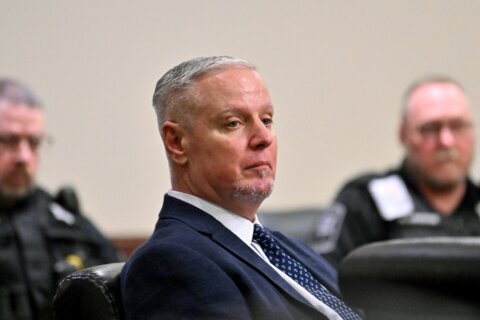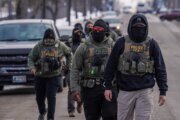From vaping, the cost of school supplies to cellphone policies, the WTOP team is studying up on hot-button topics in education across the D.C. region. Follow on air and online in our series “WTOP Goes Back to School” this August and September.
Prince William County Public Schools has updated its concussion protocol for student-athletes, citing evolving research that suggests there’s a benefit to some activity for those who are injured instead of remaining inactive.
The change to the Virginia school district’s concussion management and education policy is now in effect, ahead of the fall sports season.
Previously, athletes had to wait until they were symptom-free for 24 hours to resume most activity. But now, the plans to resume activity will be more individualized, instead of following guidelines based on a number of days for returning to class or sports after a concussion.
“We essentially thought if you got hit, the idea is that now you should do nothing until the brain is feeling better,” said Ashley Ausborn, the school division’s coordinator of sports medicine. “As the science has grown and we’ve gained a better understanding, we have noticed that the brain is able to deal with a gradual return, versus a start-stop effect.”
The timeline for students returning to school and sports is fluid, according to the new policy. They’ll gradually transition back to academics, and generally use a phased approach to resume playing sports.
That could be activity as simple as a walk or a little bit more intense, such as dribbling alone during a team practice.
“We removed this person from life, essentially, and then we said, ‘OK, you’re feeling a little bit better. Let’s add some stress that you haven’t had in, let’s argue, at least a week,'” Ausborn said.
“As a child, having to perform again in the classroom and on the field or court, it created a great deal of issues regarding the return. The headaches and dizziness could be stress, really.”
Lauren Field, the athletic trainer at Osbourn Park High School, said the change is “more individualized in this sense, versus what the old policy was — you had to follow it basically day by day.”
The first step toward returning, Field said, may be light cardio. If their body responds positively, trainers will move to the next step.
“We are noticing that the recovery improves if we’re keeping people engaged in activity that isn’t adding stress and adding to their symptoms,” Field said.
If an athlete either has or is suspected to have a concussion, they’re removed from the sporting event and can’t return the same day.
Before, athletes in ninth and 11th grades did a computer-based cognitive baseline test before the season’s first scrimmage or competition. Under the updated policy, only students with histories of concussions and those with 504 and individualized education plans will get the baseline testing.
The policy update also factors in students’ mental health, Field said.
“So often, when we had to follow such a rigid day-to-day step, it was disheartening for kids when they just feel like they can’t get through a certain day,” Field said.
More information on the updated concussion policy is available online.
Get breaking news and daily headlines delivered to your email inbox by signing up here.
© 2024 WTOP. All Rights Reserved. This website is not intended for users located within the European Economic Area.








